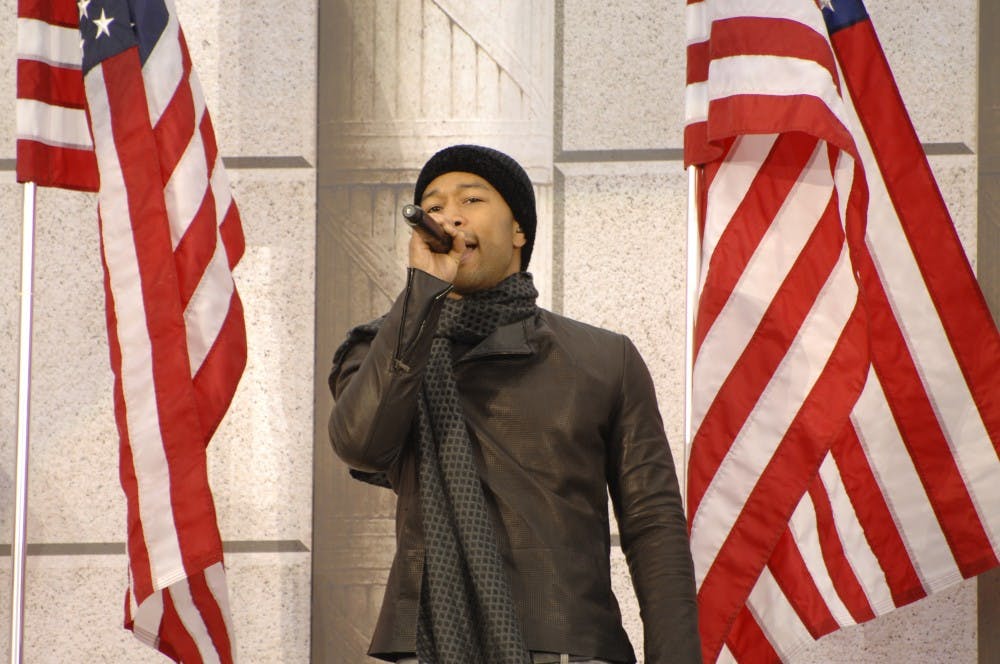Singer John Legend and actor/rapper Common teamed up for the soulful Oscar-winning song “Glory,” which was written for the Oscar-nominated film “Selma.” While the historical drama itself was snubbed from any Oscar wins (which led to a lot of buzz about the Oscars being racist or biased), “Glory” took home the win in the “best original song” category.
The song opens simply with Legend’s smoothly soulful voice accompanied by his own piano-playing. The song tries to emulate the sound of classic gospel songs, specifically southern-gospel songs, and once a gospel choir backs Legend’s vocals, the full sound of the song crescendos within the first minute.
Once Common joins for his first rap, accompanied only by strings, the song seems to take a different tone. The soaring feeling of Legend’s chorus is stopped by Common’s talking. He is rapping, but the flow is almost conversational, like he is simply telling a story to a friend. The rap itself alludes to historical events in African-American history, such as the Rosa Parks’ bus incident, the Ferguson, Missouri protests and riots, and the Rev. Martin Luther King Jr.’s struggles and triumphs.
His second rap is mostly the same as the first, but perhaps with a little more emotion. Biblical references are spat out, specifically the last line, “The coming of the Lord, mine eyes have seen the glory.” At first I thought the raps seemed out of place; after a few listens however, the story told through Common’s light-style of rapping made sense. The song is simple, and through a simple rap, more words could be spoken and understood.
I have no critique of John Legend’s voice: the man is as smooth as butter and his voice is like velvet. The combination of rap and soul has been done before, and I would say this song does it successfully. The song focuses on African-American empowerment, mostly because it was written for a movie chronicling Rev. Martin Luther King Jr., but the vagueness of the lyrics, at least in the chorus, makes the song an empowering song for all.
The combined star power of Legend and Common give the song credibility, as both have been successful acts for years, and the fact that Common actually played a role in the film he wrote a song for is very cool. Given its recent Oscar win, the song is gaining popularity, garnering more than four million views on YouTube in about a month-and-a-half. Also, because of the recent racial tension and strife in America, the song will undoubtedly attract both negative and positive attention.
In my opinion, the song is very uplifting and empowering, something that we as Americans need right now. Simple and elegant, it delivers its message directly and positively. As for the Oscar win, I am just glad it beat the song from the “Lego Movie.”





The Slate welcomes thoughtful discussion on all of our stories, but please keep comments civil and on-topic. Read our full guidelines here.